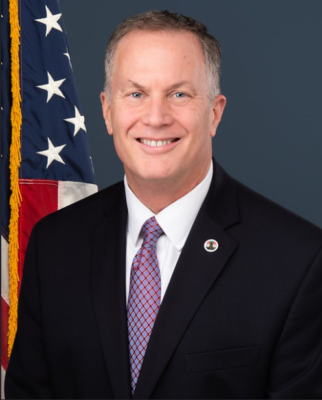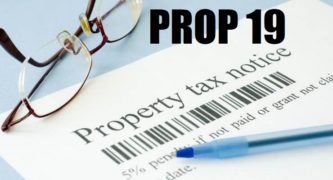
With portions of recently passed Proposition 19, which alters the way property taxes are assessed, taking effect last month, and the rest of its provisions set to begin on April 1, there remain many unanswered questions that must be clarified by the Legislature, according to Los Angeles County Assessor Jeff Prang.
Proposition 19 allows seniors, the disabled and homeowners affected by natural disasters to maintain their existing property tax rates under Proposition 13 when moving to another home, Prang explained.
It also places new restrictions on prior tax breaks related to “intergenerational transfers” of property, or inheritance, Prang said. And it’s the new policies toward property inheritance that seem to be generating the most questions, confusion and concern.
“Under the current law, you can inherit your parents’ property, their home, and it can be of any value, and you can inherit that home and the property tax basis without being reassessed,” he said. “You could also inherit a million dollars in additional property, such as a rental unit or a commercial building, without that million dollars in value being reassessed.
“Proposition 19 rolls that back rather significantly. Under Prop, 19, the additional property no longer qualifies. If you inherit a rental property or commercial property from your parents, that will be reassessed at market value,” Prang said. “So, you’ll inherit the property, but you also inherit a larger tax bill.”
Proposition 19 also mandates that only parents’ “primary residence” can be inherited without reassessment, he added.
“And then, for you to take advantage of the tax benefit it must become your primary residence,” according to Prang. “You have one year to make it your primary residence and to file a homeowner’s exemption.”
The details grow even more complex, he said.
“The inherited property tax bases also have some limits. To make it simple, if the home is worth a million dollars or less, you can inherit both the home and the property tax base and you won’t be reassessed,” Prang said. “Once you hit that million-dollar mark, you will now have a blended new tax rate. It’ll be the tax rate based on the first million dollars that your parents left you and then anything over a million dollars will be assessed at market rate. So the more expensive the home is, the bigger your property tax bill will be.”
With so many different pieces, along with some seemingly unintended consequences, Prang said he’s been doing his best to educate the public about the effects of Proposition 19.
“I’m just interested in making sure people know what the law does and what it doesn’t do,” he said. “I’m not going to be in a position to change anything. That’ll have to be done by the Legislature or by the voters themselves. But I want people to understand what’s happening.”
Numerous aspects of the law must be revisited and clarified in order for it to be enforced effectively, Prang said.
“The measure was rushed onto the ballot in the last week of the legislative session,” he said. “So there are a lot of deficiencies in the language of the measure. Property tax administration, as you can imagine, is extremely complicated.”
“I would venture to say that they probably could have afforded to be a few more experts at the table at the time this legislation was being written. Now that’s been done and my staff and the other assessors are looking at it very carefully, it’s really unenforceable for us until we get enabling legislation put into effect.”
In a letter to assessors from the California Board of Equalization seeking to clarify some of the issues last month, the agency also pointed to problems within the text of the law.
“Unfortunately, the text of Proposition 19 left a number of significant questions unanswered that are critical to its proper implementation and administration,” according to the letter.
Prang offered a few examples of what he described as flaws in the legislation.
“One that we’ve resolved temporarily, but it gives you a window into the types of them,” he said. “Let’s say you’re going to give your property to your children when you pass and you have three children and they’re going to inherit equally. Well, Prop. 19, in a plain reading of the language, says that all three of those children have to move into the property in order to take advantage of the property tax benefit.”
“That was an absurd condition that was certainly inadvertent. But that’s what it says. Fortunately, the Board of Equalization (BOE) has issued an interpretation saying that based on other laws they were able to reference, if one moves in that will satisfy the terms of Prop. 19.”
The BOE noted in its letter to assessors that Proposition 19’s “explicit, stated intent related to the intergenerational transfer exclusion is to: ‘Limit property tax increases on family homes used as a primary residence by protecting the right of parents and grandparents to pass on their family home to their children and grandchildren for continued use as a primary residence while eliminating unfair tax loopholes used by East Coast investors, celebrities, wealthy non-California residents, and trust fund heirs to avoid paying a fair share of property taxes on vacation homes, income properties, and beachfront rentals they own in California.’”
The sooner clarification can be issued the better, he added.
“February 16th is when the intergenerational transfer component went into effect. The remainder goes into effect on April 1st,” Prang said. “We still do not have enabling legislation. So people are making decisions about real estate transactions right now, without guidance from assessors or the Board of Equalization.”
“I’m committed to doing everything I can do to make this transition as smooth as possible. But I also don’t want to make promises I can’t keep,” Prang said. “There are limits to what I can do. And unless it’s dealt with in Sacramento, there’s going to be huge legal voids that are going to leave confusion and chaos in the system.”
Prange plans to discuss Proposition 19, along with other issues, during an online presentation hosted by the Pasadena Foothills Association of Realtors at 1 p.m. on March 16. The event will be free for organization members, and $15 for non-members. Those interested can register online at pfar.org/event/with-jeff-prang.
More information on Proposition 19 is available on the California Board of Equalization website at boe.ca.gov/prop19/#Introduction.














 0 comments
0 comments


